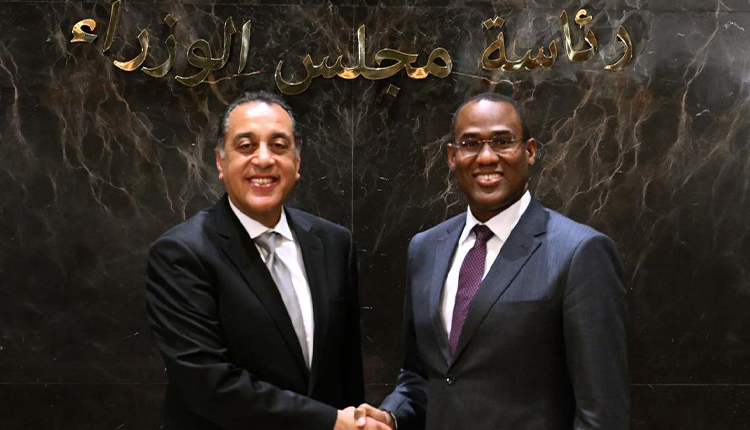IMF’s Clarke praises Egypt’s reforms, reaffirms support during Cairo visit
The International Monetary Fund’s (IMF) Deputy Managing Director Nigel Clarke praised Egypt’s recent economic reforms and reaffirming the IMF’s commitment to support efforts to boost resilience and achieve inclusive, private sector-led growth.
Following a series of high-level meetings with Egyptian authorities this week, Clarke said in posts on social media platform X on Sunday and Monday, that he held “fruitful and productive” discussions in Cairo.
“Building on the recent reforms that have improved Egypt’s fiscal trajectory would help strengthen resilience to external shocks,” Clarke said, following his meeting with Minister of Finance Ahmed Kouchouk on Sunday.
The IMF official highlighted key policy moves, including Egypt’s transition to “a flexible exchange rate regime together with prudent monetary policy,” as instrumental in containing inflation and enhancing macroeconomic stability.
This transition “has helped Egypt strengthen resilience to shocks while reducing inflation,” he added.
We had a fruitful and productive discussion. Building on the recent reforms that have improved Egypt’s fiscal trajectory would help strengthen resilience to external shocks. pic.twitter.com/71WBP1ekBj
— Nigel Clarke (@NigelClarkeJa) May 18, 2025
Clarke also underscored the importance of maintaining momentum on reforms to unlock higher, more inclusive, and job-rich growth, led by the private sector.
It was great to meet with Egypt’s Minister of Finance, @MofEgypt ,
Ahmed Kouchouk, to discuss policy reform priorities to strengthen Egypt’s resilience and to achieve higher, more, inclusive, private-led, and job-rich growth. pic.twitter.com/DREMya8HIl— Nigel Clarke (@NigelClarkeJa) May 18, 2025
During his meeting with Central Bank of Egypt (CBE) Governor Abdalla, Clarke said he reaffirmed the IMF’s “strong partnership” with Egypt and discussed efforts to “the continued building of resilience to external shocks.”
Shifting to a flexible exchange rate regime together with prudent monetary policy has helped Egypt strengthen resilience to shocks while reducing inflation. pic.twitter.com/ppu5tiGWT4
— Nigel Clarke (@NigelClarkeJa) May 18, 2025
In talks with Prime Minister Moustafa Madbouly, Clarke reiterated the Fund’s “strong commitment” to supporting “Egypt and its people in strengthening the resilience of the economy and achieving higher, and private sector-led growth.”
“We discussed how we can best support Egypt in building a prosperous future for its citizens,” he said.
It was a pleasure to meet with H.E. Prime Minister of Egypt, Mostafa Madbouly, to reiterate the IMF’s, @IMFNews, strong commitment to support Egypt and its people in strengthening the resilience of the economy and achieving higher, and private sector-led growth. pic.twitter.com/8pyqHAgGWT
— Nigel Clarke (@NigelClarkeJa) May 19, 2025
Egypt is currently under an expanded $8 billion loan programme with the IMF, agreed in March 2024, after a revised and extended deal aimed at bolstering the country’s economic reform agenda amid pressures from high inflation, currency depreciation, and external financing needs.
The IMF has consistently called for greater exchange rate flexibility, fiscal consolidation, and deeper structural reforms to improve the investment climate and enhance private sector participation in the economy.
Egypt’s reform program is being closely watched by international investors, particularly as the country navigates high inflation, fiscal consolidation, and a challenging global economic environment.
Attribution: Amwal Al Ghad English
We discussed how we can best support Egypt in building a prosperous future for its citizens. pic.twitter.com/cFJlBiiyYS
— Nigel Clarke (@NigelClarkeJa) May 19, 2025


